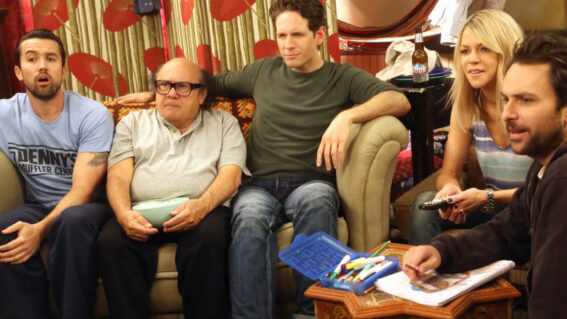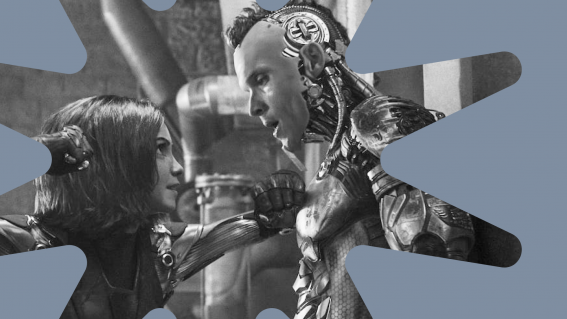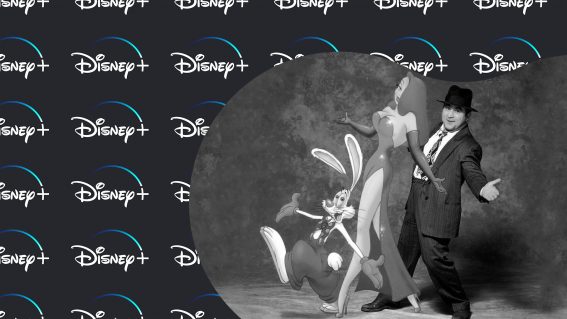I, an avid lover of the MCU, see where Scorsese’s coming from
Is he right? Is he wrong? It’s not as simple as that.

Martin Scorsese recently doubled-down on his anti-Marvel stance with an opinion piece. As an avid lover of the MCU, Liam Maguren thinks he finally understands where the filmmaking legend’s coming from and muses over the cinema future of Marvel films.
When asked about Marvel films in a now-infamous interview with Empire, Martin Scorsese delivered a grab-quote republished all over the world: “I don’t see them. I tried, you know? But that’s not cinema.”
That’s not cinema. Three words that sparked endless rebuttal pieces and YouTube essays for and against his short take. Scorsese wrote his own retort for the NY Times, giving a better understanding of what he believes ‘cinema’ is and what ‘Marvel’ isn’t.
Is he right? Is he wrong? It’s not as simple as that. It rarely is. Perhaps if Scorsese added three more words—”In my opinion, that’s not cinema”—people would have put their ‘old man yells at cloud’ memes away and understood that he’s expressing his perspective on things; not claiming a fact.
His latest retort makes this very clear. “The fact that the films themselves don’t interest me is a matter of personal taste and temperament.”
He continues: “Many of the elements that define cinema as I know it are there in Marvel pictures. What’s not there is revelation, mystery or genuine emotional danger. Nothing is at risk. The pictures are made to satisfy a specific set of demands, and they are designed as variations on a finite number of themes.”
As an avid lover of the Marvel Cinematic Universe, reading this instantly brought to mind one of the big criticisms of the MCU that Marvel fans themselves grew frustrated with: their lacklustre villains. The underwritten Whiplash in Iron Man 2. The ultra-bland Ronan in Guardians of the Galaxy. Who was the bad guy in Ant-Man again? Doesn’t matter. Point is, when you don’t engage with the villain, you don’t engage with the threat. And when that happens, it’s just as Scorsese says: “Nothing is at risk.”
‘Revelation’ and ‘mystery’ go out the window, too, when you stick so closely to the ‘hero defeats villain’ blueprint. Crowds grew comfortable with that assurance. It’s telling when the death of a low-grade side-character like Agent Coulson elicited shocked gasps in 2012’s The Avengers.
It’s only in later MCU movies that Scorsese’s perspective starts to fall apart. Captain America: Civil War ignited intrigue in the audience by pitting heroes against heroes and concluding with a climax that gave no easy re-assurances. There’s been no aesthetic, emotional and spiritual revelation quite like that seen in Black Panther with its Oscar-winning production that embraced afrofuturism and a complex villain that cracked open the scars of colonisation.
As for Infinity War? Well, the heroes lost. After a decade of comforting the audience with assured victories, they ended a film with the destruction of half the universe. Audiences had to sit with that for an entire year, unsure what would happen from this point forward. Sure, some theories hit the rims of the dartboard, but to most, it was a genuine mystery.
Endgame starts by exploring the aftermath of the devastation with true humanity, dedicating roughly an hour to the grief its characters were experiencing. It acknowledged the consequences in the previous film with a heavy heart while emphasising the dangers of trying to set things right. They may have eventually defeated Thanos but at a significant cost—the death of numerous characters we’ve known for years.
Black Panther presented a ‘revelation’. Civil War instilled genuine ‘mystery’. The stakes in Infinity War and Endgame offered proper ‘risk’. To me, that’s the cinema Scorsese’s talking about.
But would Scorsese have seen those later Marvel films? I’m guessing not. He “tried” to watch them, as he says, but most likely fell off the bandwagon before Marvel challenged their own safe blueprint.
With that in mind, I can see where Scorsese’s coming from, though I can’t help but wonder what he might’ve said if he did experience the entire MCU. I can’t speak on his behalf, but if I have any personal takeaways from all this, it’s this: we may have gotten a couple of Marvel films that suit Scorsese’s definition of cinema, but they relied on a mountain of ‘safe’ entries.
Looking at the next glut of MCU films, how many more ‘hero defeats villain’ entries will we accept before something really punches? They’ve confirmed a Black Widow movie, another Doctor Strange, another Spider-Man, another Thor, another Black Panther, another Guardians, and another Captain Marvel. They’re almost guaranteed to be entertaining, but will any of them also break safety protocol and deliver something seismic? Guess we’ll wait and see.
Or will we? I love the MCU for what it achieved over the past 11 years—that, in and of itself, is a revelation—but I’m not sure if I can experience another decade of The Blueprint again just to get to a culminating event with proper intrigue and actual risks.
While these films will garner a hefty number of screens, Scorsese’s The Irishman will only get a limited run in cinemas before it streams on Netflix. He couldn’t get it made any other way, which speaks to the risks streaming services are willing to take.
This makes me think of Disney+ and their big streaming show: The Mandalorian. It’s a riskier proposition than, say, an episodic Star Wars sequel, but the rabid excitement behind the show dwarfs that of The Rise of Skywalker, which is due in cinemas for Christmas.
Disney+, which will undoubtedly gain a flood of subscribers on day one, comes at an interesting time for the MCU. With the knowledge that Marvel films will make their way to the streaming service, how many of their subscribers will bother going to see them on the big screen knowing they’ll soon be able to see them on their own screens?
Most of them? Half of them? None of them? It’s too early to call. But when the battle of the streaming services commences, it’ll be fascinating to see how many of these streaming films thrive on the big screen and which ones can only find life on a tablet.
That’s when going out to the multiplex will take on a different value. As such, don’t be surprised if you change your own thoughts on what is, and what isn’t, cinema.





















